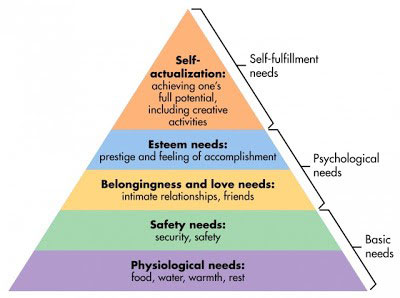Burnout
Defining Burn Out
Burn-out is when our bodies and minds have been experiencing chronic stress for a prolonged period of time. This may be from managing a high level of expectations, and/or from managing symptoms related to a neurological difference.
There are numerous phases of burn-out that can occur in many different orders:
- Excessive drive/ambition. Common for people starting a new job or undertaking a novel task, too much ambition can lead to burnout.
- Pushing yourself to work harder. Ambition pushes you to work harder.
- Neglecting your own needs. You begin to sacrifice self-care like sleep, exercise, and eating well.
- Displacement of conflict. Instead of acknowledging that you're pushing yourself to the max, you blame your boss, the demands of your job, or colleagues for your troubles.
- No time for nonwork-related needs. You begin to withdraw from family and friends. Social invitations to parties, movies, and dinner dates start to feel burdensome, instead of enjoyable.
- Denial. Impatience with those around you mounts. Instead of taking responsibility for your behaviors, you blame others, seeing them as incompetent, lazy, and overbearing.
- Withdrawal. You begin to withdraw from family and friends. Social invitations to parties, movies, and dinner dates start to feel burdensome, instead of enjoyable.
- Behavioral changes. Those on the road to burnout may become more aggressive and snap at loved ones for no reason.
- Depersonalization. Feeling detached from your life and your ability to control your life.
- Inner emptiness or anxiety. You may turn to thrill seeking behaviors to cope with this emotion, such as substance use, gambling, or overeating.
- Depression. Life loses its meaning and you begin to feel hopeless.
- Mental or physical collapse. This can impact your ability to cope. Mental health or medical attention may be necessary. (Fraga, 2020).
Avoiding Burn Out
What a huge job we have! Parenting a child with additional needs can be really hard sometimes.
We put ourselves last at times. We forget self care. Yup, that thing again. The thing we don't really do ...
|
|
When things are hard:
|

Get back to Basics ...
- Work to take care of yourself: rest, nutrition, and exercise.
- Self compassion:
- Be patient with yourself
- Be kind to yourself
- Take time for you
- Celebrate the achievements
- Get support – Many parents say that parent support groups are one of the best ways of getting the help they need. Search for a parent support group, or start one in your community. Bring your spouse or partner to the group. Ask at your child’s school, your local community centre or hospital, or see the Resources section in the back of this handbook.
The Brain
What we know: Different brains process information differently. Being extra sensitive can make it harder to stay on task, eat the same foods, and wear the same clothes as other kids.
Sensory sensitivities: is being sensitive to sounds, touch, tastes, smells, etc. Some of us may have them too. And many of our kids have them, times a million.
Being Impulsive: acting before we think and not thinking about the consequences of our actions.
- Some people are more impulsive than others.have it more and others have it less.
- It’s normal for children to have a tough time with this.
- Our Temperament has something to do with it too
- Our Neurology: ADHD/ADD
Helping a child cope with BIG feelings
- 5 steps, what to do if we’re feeling stressed?
- Feelings chart/thermometer
- Celebrate achievements no matter when
- Naming feelings - role modeling and for our children “You look frustrated” Acknowledging feelings without taking them away.
What is "calm breathing"?
- Calm breathing is a technique that teaches your child to slow down his or her breathing when feeling stressed or anxious.
Why is calm breathing important?
- When we all feel anxious or worried, our breathing changes. It can be short, quick, or shallow and at times people can hyperventilate. Breathing this way makes us feel worse!
- Breathing Calmly can lower anxiety and gives us a sense of control. It can be anywhere with us, and our children can do it even when we are not there.














